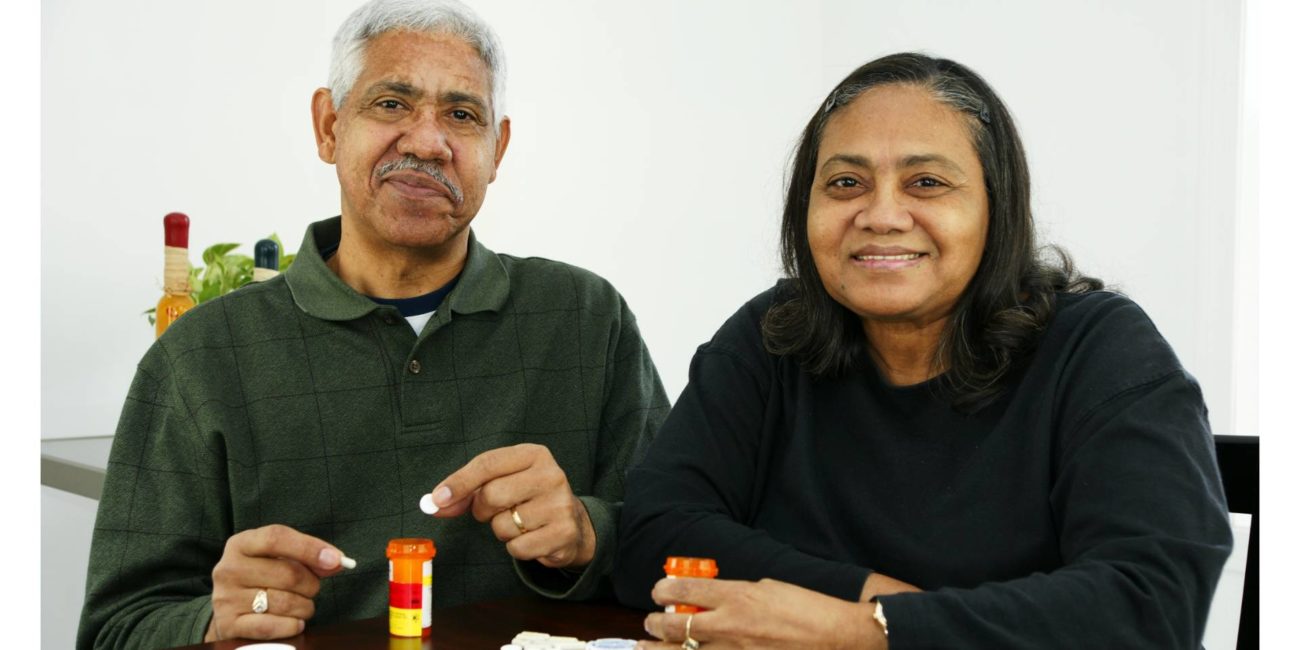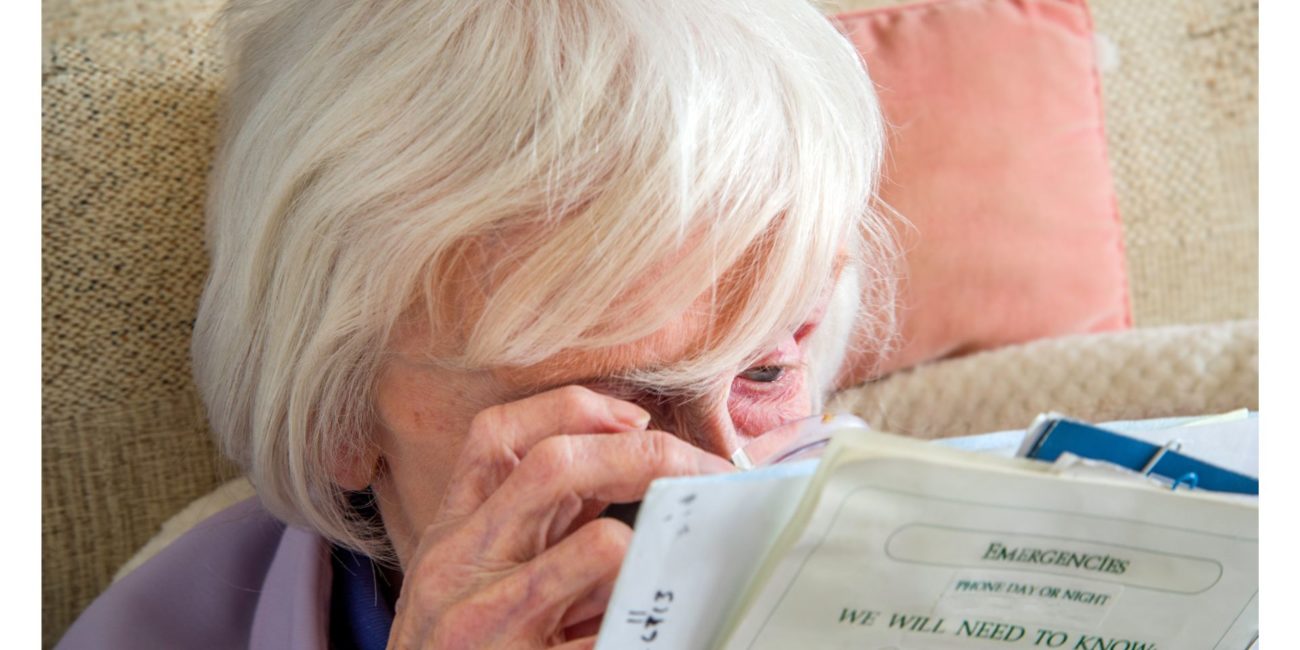We all have routines, from brushing our teeth to how we make our coffee. When it’s time to add something new, it can be tricky to remember and maintain. The same is true for our loved ones. Medication management can be a complicated process. After decades of similar routines, it can be hard for anyone to add something new, even as important as medicine.
A majority of aging adults struggle with their medication management; Various studies show that anywhere from 50-60%of aging adults struggle with medication adherence. Over 87% of seniors are on one or more regular prescription drugs vital to their daily health. These numbers represent a vivid story—without proper management, the risks can be great. I know that aging can feel like a team effort, and there is no more important part of this teamwork than ensuring meds are taken on time, on schedule.
I understand that this seems easier said than done; We have many caretaking responsibilities, and medication is just one of the many ways we help our loved ones. I want to partner with you and unpack some reasons why medication management for seniors can be so tricky while offering some creative solutions to assist you!

What are the most common challenges when it comes to medication management?
Physical
Our loved ones are experiencing physical sensations or symptoms that might be making proper medication management difficult. Some of those reasons might be a side-effect from a new medical diagnosis, a physical impairment they are still adjusting to, or cognitive changes. Some of those reasons may include:
- Vision problems causing difficulty reading or understanding the medicine
- Hearing loss causing a misunderstanding around the medications
- Memory loss, Alzheimer’s disease, or dementia causing forgetfulness around the medication schedule
- Mobility changes discouraging added movement to get to the medication
- Swallowing problems causing discomfort or fear around taking medication
Environmental
Other times, an aging parent may struggle with medication management due to environmental or situational reasons like loneliness or mistrust around medication. These reasons are valid experiences that complicate medication management for seniors. Some of these situational reasons could include:
- Discomfort or disagreement in taking the medication
- Personal shame or depression around their medication
- Social isolation making it harder to value and follow medication schedules
- Financial scarcity or insecurity around how to continue to pay for a medication

How Can We Help Increase Medication Compliance?
Talking Out Physical Changes
When a loved one is experiencing a new physical impairment, it can be hard to talk about. They might feel embarrassment or shame around discussing new challenges. Or perhaps they don’t even realize that they are struggling or misunderstanding medication information. These feelings of discomfort are common and understandable. It could be helpful to create compassionate, safe spaces for conversation around the physical changes our loved ones are experiencing. A conversation might give them a comfortable space to talk about their body and any challenges openly. Hopefully, it will provide us with more information on how we can continue to adapt our support and care for our aging parent.
Talking Out New Emotions
If we notice our family member is missing medications and are not aware of any physical impairments, we should open up a dialogue with them. Perhaps an environmental reason is a cause. Like physical changes, these feelings can be hard to admit and talk about, even among family. However, a safe conversation centered around their feelings regarding their medication could help us better understand the real root of the problem.
Taking time to observe a loved one and opening up emotional conversations may feel intimidating. When we discover the root cause for their medication troubles, it will be easier to adopt a solution. And creative solutions are what I want to offer you!

Medication Management and Hearing Loss
Hearing or vision loss can be scary, especially when it comes to taking medication. If a loved one struggles with a hearing or vision barrier, there are a few ways to support them in their medication journey.
Help a loved one by making sure they hear and understand medicine directions correctly. This includes doctor’s appointments and at the pharmacy—intimidating places where lots of medical information is quickly rattled off and is difficult to hear. Ensure that they have with them whatever hearing devices they are comfortable with before each appointment. If necessary, organize family to accompany them to appointments to have a second set of ears to listen and clarify medicine information.
Some families choose to write out medicine names, purposes, and reminders on charts in their loved one’s kitchen or bedroom. If our aging parents struggle with hearing, finding a clear visual system for medication management could comfort them. Even a simple whiteboard we update once a week could provide them clarity and comfort!

Vision Loss and Medication Management
Not being able to read the pill bottle is a root cause for many aging adults who are struggling with medication management. If a loved one grapples with vision impairment, consider solutions that alter the pill bottle labels Many pharmacists can create visually accessible medication labels for easier reading. Pharmacies can often print these labels in large print or even braille.
If a more prominent pill bottle label is still doing the trick, consider investing in a talking medication management device for a loved one. We can organize our loved ones’ medications safely and then let the device work for us throughout the week through voice technology or alarms.
Some devices even have the technology to scan and read the medication bottle and automatically dictate medication information like dosage, name, and reactions. Vision problems are a common aging experience, and there are solutions out there to support our family members!

Loneliness Solutions for Medication Management
Social Isolation & Loneliness
As caregivers, we value our loved one’s health and wellbeing, consistently making them a priority. It can be startling, hurtful even, if we hear our aging parent is still feeling lonely or isolated. This does not mean we are not “showing up enough.” Instead, this is a natural experience many aging parents have as their life transitions more to staying in the home.
This can affect their medication management. Medical experts have noticed trends where aging adults who feel lonelier tend to be less consistent in taking their medication. If a loved one struggles with their medications, consider opening up a conversation about how they are feeling emotionally. Are they lonely and struggling to find the motivation to take their medications? Do they feel isolated, and so taking medications alone feels scary?
If our parents express any of these feelings, perhaps the solution can be easily found within our relationship. For instance, maybe we can easily switch our visits to times when they need to take their medications. Or perhaps even a 10-minute phone call at med-time would help!
Or, if a loved one’s social needs require more time than we have available, that’s ok too! Talk to an aging parent about hiring some outside help. Sometimes a part-time professional caregiver or a caring companion for few hours a week can help a loved one’s loneliness immensely as well as encourage better medication adherence.
Medication management in-home health care is a common need in every community. Don’t be afraid to reach out to local resources and ask for help!

Financial Solutions for Medication Management
Finances can be hard to talk about in any family. Money woes cause stress in almost every adult at some point in life, and, sadly, this includes our older loved ones. One common cause for poor medication management is financial stress and worry.
Many seniors lived on a fixed income, which means new bills could bring further stress. So, some aging adults, to save money, will sometimes skip medicines, split pills, or stop taking medications they deem “unnecessary” altogether.
It can be helpful to remember that sometimes our parents show financial stress around medications, even if, from our perspective, the budget works! When living on a limited fixed income, any new expense can be understandably scary. And a loved one may just be wanting to problem-solve ways to stretch their resources!
If a loved one struggles with money and medication payments have become a financial burden, there is help. Consider some of these strategies as a starting point for financial support:
- Research if a parent’s prescribed medicine could be switched to a cheaper generic version. Usually, the ingredients for these medicines are the same. First, consult with their doctor if this could be an option.
- Look out for various financial assistance programs. These programs can be through a loved one’s pharmacy, medication manufacturer, or local or government agencies. The best place to start is by asking a parent’s pharmacist or doctor’s office about any known programs for their specific medication.
- If a loved one is on Medicaid, they may qualify for different financial assistance programs. Various programs have specific requirements, so not every program will result in financial assistance. However, a loved one may be eligible for financial support! Connect with the local Social Security office for more information on these types of programs.

Memory Loss Solutions for Medication Management
As our loved ones experiences new stages in their dementia or memory loss, managing medications may be a habit in which they need assistance. As we may have already experienced, memory loss can come in phases. Each phase comes with its unique struggles, particularly around medication management for seniors.
As caregivers, we may find that we need to adapt medication strategies as our loved ones’ memory changes. For instance, they may start their medication journey with a simple pill tracker and calendar. If, over time, they need more support, consider upgrading to medication management technology.
There are medicine systems that can allow us to act as a remote caregivers, alerting us if a medication perhaps hasn’t been taken. For some families, in-home care is needed as a loved one progresses through different disease stages. There are plenty of specialists and part-time nursing options in medication management for seniors. If you feel like you might be at this stage with your aging parent, consult with their doctor for next step options.
I understand that you are juggling many things as a caregiver and medication management is just one responsibility! Some technologies could support a loved one in their medication management. Continue reading as we revisit some of these technologies!

How Can the Elderly Organize Medications?
Technologies that Help
Medication management for seniors has traditionally used some form of a pillbox. Many of us even grew up seeing these on family members’ nightstands or kitchen counters! And for some aging adults, these standard pill containers still work. However, many aging adults need more support than these simple boxes can offer. Thankfully, technology has renovated the simple “pillbox” significantly!
The Pillbox Upgraded
If a loved one is still relatively independent with their medications but could use a reminder, consider a pillbox that comes with an alarm feature. These pillboxes do not ensure the medication is being taken correctly. Still, they will alert a parent to gently remind them to take their medicines at a specific time each day. Most products will continue to beep as well until the box is opened.
Automated Medication Management
The next step in a medication management product would be an automated pill dispenser. Usually, these products are locked units that will automatically dispense a loved one’s medications at programmed times.
Like an alarmed pillbox, these automated products will usually sound alarms or flash lights until the medication is picked up (depending on a loved one’s vision and hearing needs). This is a popular next-step product for seniors with Alzheimer’s disease or other forms of dementia.
Remote Caregiving Technologies
Suppose a higher level of support is needed. In that case, there are medication management products that can involve the family more! A unique feature of these higher-tech automated dispensers is that we can get reassuringly informed when a medication has been taken, usually through our mobile device. Additionally, it can notify us when something is maybe amiss when medicine has not been taken.
This can not only help us track medication, but it can act as a first alert if something else is wrong, such as them not feeling well or even a fall. Many families find these products helpful because sometimes a simple call to remind mom to take her meds she missed an hour ago is all they need to get back on track!

Solutions and Support for Medication Management for Seniors
I understand that as support systems for our loved ones, we are balancing many responsibilities. Between doctor’s appointments, shopping lists, and family visits, managing medications too may feel overwhelming. But support and solutions are available.
I would love to partner with you as you explore solutions for medication management. Solutions that might even lessen your load and give you more space to enjoy time with your parents.




Leave a Reply